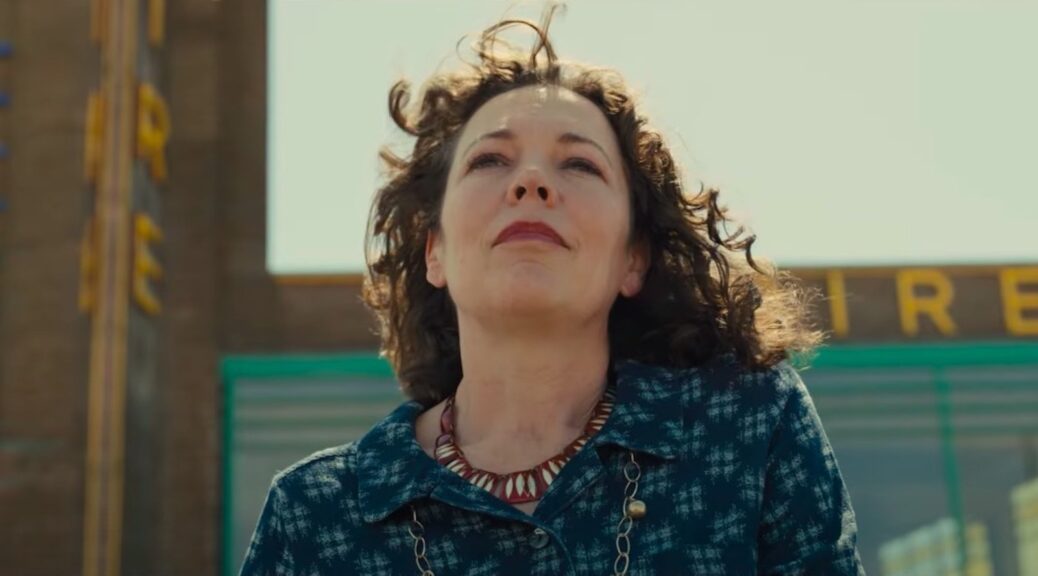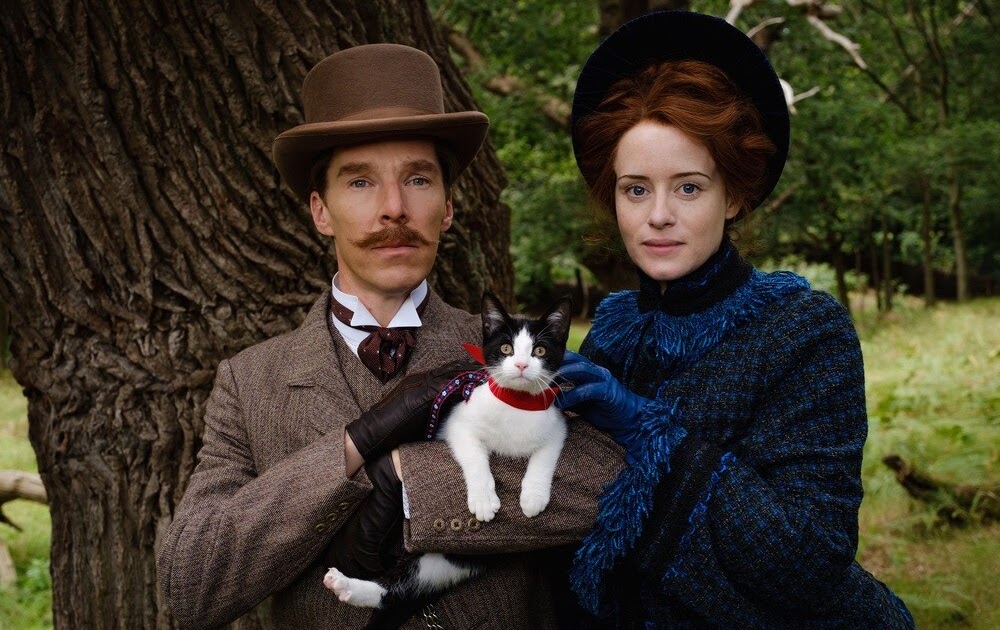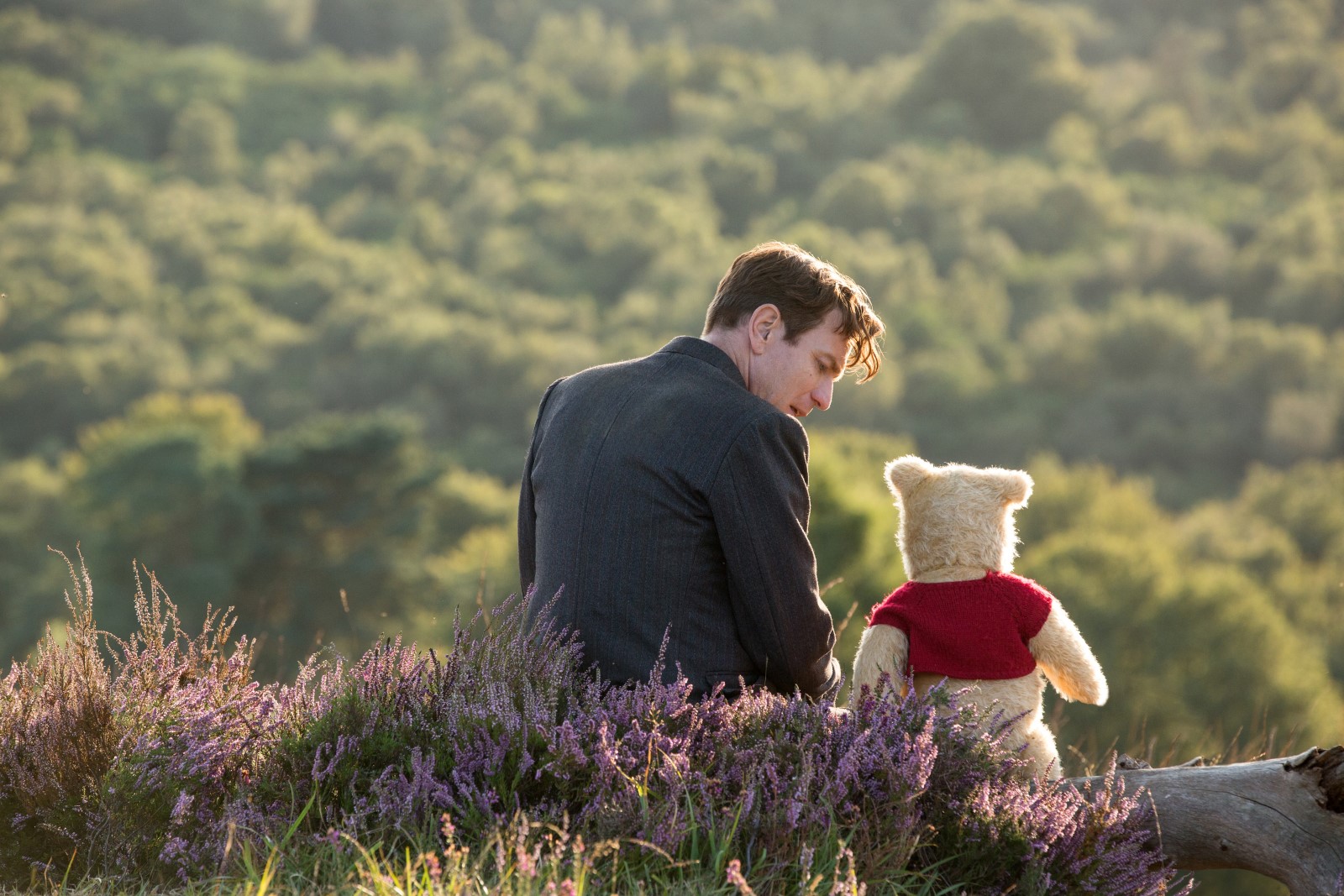Tetris
by George Wolf
So, you had mad Tetris skills back in the day, did you? Wel then, maybe you know that the name came from merging “tetra” (Greek for “four”) with “tennis.”
But did you know that the road to your gaming glory was paved with blackmail, Cold War intrigue, corporate backstabbing, KGB harassment and perhaps even one exuberant singalong to Europe’s 1986 anthem “The Final Countdown?”
The Apple Original Tetris gives us all that and more, riding an animated lead performance from Taron Egerton and a nostalgic, 16-bit aesthetic for an entertaining ride through history that’s only too happy to borrow from both Pixels and Argo.
And no matter how familiar you are with gaming culture, this is one crazy-ass story.
In the late 1980s, Henk Rogers (Egerton) was a video game sales rep whose shoot-from-the-hip manner and boots-with-suits style earned him a cowboy reputation. His first look at Tetris left him mesmerized at its “poetry, art and math,” and obsessed with obtaining the marketing rights for he called “the perfect game.”
But Tetris was a spare-time invention from Russian worker bee Alexey Pajitnov (Nikita Efremov), and getting those rights would put Rogers in the criss-crossing crosshairs of a competing sales rep (Toby Jones), a billionaire tycoon (Roger Allam, under some questionable makeup) and his heir (Anthony Boyle), game developers from Nintendo and various members of the KGB.
Fun! it is, especially the moments when a Russian business exec (Oleg Stefan, fantastic) moves from room to room in his office building, pitting the players against each other with deadpan delight.
Once again, Egerton is terrific. We first meet Henk as a fast-talking sales dog always ready with a pitch. But as Henk’s passion for a possible Tetris goldmine gives way to manic desperation, it feels real, as does his concern for safety of Alexey and his family.
Director Jon S. Baird (Stan & Ollie) indulges the throwback Thursday vibe, with plenty of game player graphics, pixellated frames and 80s jams. But look beyond the breezy attitude, and you’ll also find that writer Noah Pink includes some resonant nods to how even the seemingly harmless technology can quickly be weaponized.
Yes, the finale becomes a bit tidy, idealistic, and familiar (does Ben Affleck get a credit?), but the fictionalized history of Tetris is worth revisiting, meaning that after a slew of terrible video game adaptations, the genre can bask in a rare double score. Dungeons and Dragons can please crowds at the multiplex, while briefcases and boots gets the job done at home.








